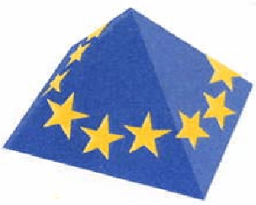Home » Posts tagged 'Constitutive Modelling'
Tag Archives: Constitutive Modelling
PhD Position in Experimental Soil Mechanics at Delft University of Technology (scadenza 17 ottobre)
Project motivation
Soft highly organic soils are widespread in the foundation layers of the built environment all over the world. They contain organic matter, roots and fibres, which improve their mechanical response. However, these soils are extremely vulnerable to climate-related hazards. Increasing climatic stresses, such as heat waves, drought, and more frequent intense precipitation accelerate the degradation of organic soils, by increasing their drying and shrinkage rate above the water table and their decomposition rate under water, with gas generation and exsolution. Both these mechanisms, drying and gas exsolution, ultimately contribute to significant land subsidence and reduction in available resistance. Quantifying the geotechnical engineering consequences of seasonally varying loads, including drying-wetting, temperature cycles and degradation, on organic soils is extremely challenging due to the complexity of a proper description of multi-physics gas-liquid-solid interaction. The project aims at deepening the understanding and the modelling of these coupled processes, to mitigate the climate-related hazard in natural soils and to assist in the design of durable innovative green solutions.
Job description
The twofold aim of the PhD project is:
– To experimentally investigate the coupled hydro-mechanical behaviour of organic soils subjected to cycles of environmental (e.g. drying and wetting, temperature) and mechanical loads. Soft soils reinforced with natural and artificial organic fibres will be tested, to quantify the role played by fibres, gas and fabric on their mechanical behaviour.
– To enhance existing constitutive models in order to include the effects of environmental factors such as drying-wetting cycles, temperature cycles and degradation in the prediction of their geotechnical properties.
The PhD candidate will benefit from advanced experimental laboratory facilities including unsaturated triaxial apparatus, biaxial plane strain apparatus, large-scale testing facility, geotechnical centrifuge and imaging facilities already available in the Faculty of Civil Engineering and Geosciences of TU Delft and partner institutions, and the support of experienced technical staff.
More information in the attached document: PhD_position_TU_Delft_TUD01486
The closing date for the applications is 17 October 2021.
Webinar: SANISAND-F: A fabric-based sand constitutive framework within anisotropic critical state theory (University of Liverpool – 13 October 2020)
The University of Liverpool Division of Civil Engineering invites to the following webinar:
SANISAND-F: A fabric-based sand constitutive framework within anisotropic critical state theory
by Dr Alexandros Petalas, Imperial College
Tuesday 13 October 2020 12.00 BST (13.00 CET)
Details of how to register can be found at the following link
Special Issue “Numerical Modeling in Geotechnical Engineering” su Geosciences
Vi segnaliamo il numero speciale della rivista open-access Geosciences di MDPI sul tema “Modellazione numerica nell’ingegneria geotecnica“:
https://www.mdpi.com/journal/geosciences/special_issues/geotechnical_engineering_modeling
di cui sono Guest Editors Valentina Lentini, Maria Rossella Massimino, Maurizio Ziccarelli e Dimitris Pitilakis.
Sarà possibile sottoporre gli articoli fino al 15 dicembre 2020 e ciascun lavoro accettato sarà pubblicato indipendentemente dalla tempistica degli altri articoli del volume speciale.
ALERT Geomaterials – Newsletter
 Segnaliamo la possibilità di iscriversi alla newsletter di ALERT (Alliance of Laboratories in Europe for Education, Research and Technology) tramite l’apposito modulo del sito http://alertgeomaterials.eu/ .
Segnaliamo la possibilità di iscriversi alla newsletter di ALERT (Alliance of Laboratories in Europe for Education, Research and Technology) tramite l’apposito modulo del sito http://alertgeomaterials.eu/ .
The Alliance of Laboratories in Europe for Education, Research and Technology (ALERT) “Geomaterials” has been created in 1989 by Roberto Nova, Manuel Pastor, Ian Smith, Peter Vermeer, Olek Zienkiewicz and Félix Darve as a pioneering (at that time!) effort to develop a European School of Thinking in the field of the Mechanics of Geomaterials. The generic name “Geomaterials” is viewed as gathering together materials, whose mechanical behaviour depends on the pressure level, which can be dilatant under shearing and which are multiphase because of their porous structure. So, the “geomaterials” label brings together mainly soils, rocks and concrete. It has been obvious from the very beginning that there is a crucial need for a joint Graduate School in order to build firmly this European scientific group in the Mechanics of Geomaterials, in close link with the doctoral students.
The main areas of interest are
– micromechanics and constitutive modelling for geomaterials
– engineering, failure, strain localisation and instabilities
– large scale computations for geomaterials and geostructures
– integrity of geostructures and inverse analysis in geomechanics
– environmental geomechanics and durability of geomaterials
The core activity represents the annual meeting with ALERT Workshop and ALERT Doctoral School.
Maggiori informazioni su: http://alertgeomaterials.eu/
IACMAG 2019 at IIT Gandhinagar (India) – scadenza abstract 3 Agosto
![]() Dear Colleagues,
Dear Colleagues,
We invite you to contribute your innovative work in the International IACMAG Symposium at IIT Gandhinagar during 5-7 March 2019.
More details of the symposium are available on http://events.iitgn.ac.in/2019/iacmag/
The deadline for abstract submission is 3rd August 2018.
Per chiarimenti e comunicazioni non esitate a rivolgervi a: iacmag2019@iitgn.ac.in
Amit Prashant and Ajanta Sachan
Indian Institute of Technology Gandhinagar
Palaj. Gandhinagar
Gujarat – 382355; India


